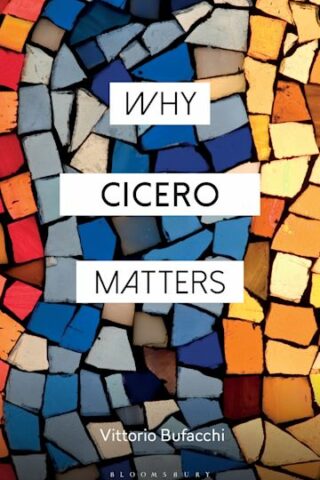
Symposium Introduction
Panelists
Victoria Rimell
Gesine Manuwald
Scott F. Aikin
Massimo Pigliucci
Lynn S. Fotheringham
Overview
Why Cicero Matters shows us how the Roman philosopher and statesman Marcus Tullius, better known as Cicero, can help realize a new political world. His impact on humanitarianism, the Enlightenment and the Founding Fathers of America is immense. Yet we give Julius Caesar all our attention. Why? What does this say about modern politics and political culture?
This book gives us Cicero as an antidote to the myth of the strong man of history. Reading Cicero’s On Duties alongside two more introspective philosophical texts, On Friendship and On Old Age, we see how Cicero turned politics into a higher, intellectual form of art, believing in education, in culture and above all in the power of philosophy to instil morality. Cicero has reassuring words on the indispensable work philosophers make, and why the common good needs philosophy.
In an age when anti-intellectualism runs rampant, Why Cicero Matters introduces us to an ancient thinker who argues culture is, or ought to be, the foundation of any modern democracy, and books its building blocks.
Reviews and Endorsements
“This book offers an engaging introduction to key elements of Cicero’s political philosophy and shows how his views and arguments can still be relevant in contemporary society: comparisons with the modern world from the author’s personal perspective provide stimulating food for thought.” ―Gesine Manuwald, University College London, UK
“Almost in the style of his subject’s Letters, Bufacchi strikes up a warm and witty friendship with Rome’s most famous orator and statesman; this short book offers a superb introduction to Cicero’s political and philosophical thought, yet is also a thought-provoking meditation on the rise of authoritarian populism today.” ―Victoria Rimell, Professor of Latin, University of Warwick, UK
“An engaging and accessible account of Cicero, that emphasises his contemporary relevance. Bufacchi shows how Cicero’s criticisms of the authoritarian populists of his day apply to the little Caesars of today. He draws a compelling parallel between Cicero’s defence of the Roman Republic and our current defence of democracy, showing how it likewise turns on reviving the mixed constitution.” ―Richard Bellamy, Professor of Political Science, University College London, UK
“A lively and entertaining argument that the republican politician-philosopher Cicero can speak to us on key issues that concern us today – when economic self-interest saps citizen solidarity, social media erodes relationships, and populist autocrats undermine democracy – all richly illuminated by reference to historical and contemporary events and ideas.” ―Iseult Honohan, Associate Professor Emeritus, Politics and International Relations, University College Dublin, Ireland